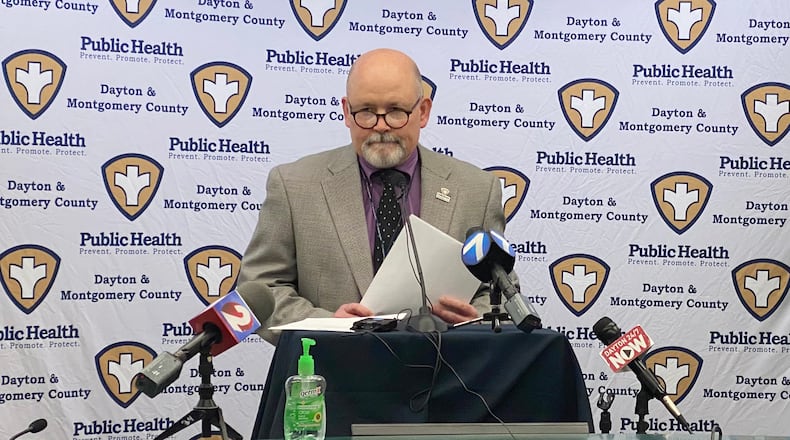>> Coronavirus: Complete Coverage
“But that 328 is a significant number for us,” Health Commissioner Jeff Cooper of Public Health - Dayton & Montgomery County said Tuesday during a press conference on the coronavirus situation. It exemplifies the outstanding work that everyone in our community has done to limit the spread of the virus.”
He praised residents for complying with the stay at home order, and now the stay safe Ohio order in effect through May 29, which includes maintaining social distancing. While it is not required for customers to wear masks, he urged them to do so to help protect the health of others.
Cooper said he is encouraged by more testing, but said the first priority will be those who are ill and those who are most at risk of serious illness or death, especially those in communal living environments.
Of particular concern are Montgomery County’s 38 skilled nursing facilities, 40 nursing homes, eight correctional facilities, five hospice locations and a multitude of mental health or substance abuse residential treatment centers, Cooper said.
“We need the capacity to respond rapidly as a community to do contact tracing for cases that may occur in those facilities and then make sure we are able to identify all close contacts that have been in those facilities and then we can then quarantine those individuals,” he said.
There are 685 who do contact tracing across the state. Ohio Health Director Dr. Amy Acton said that number will likely need to be increased to about 1,800 statewide.
Public Health is working on its plan to determine what it will need and options including partnering with other health agencies in the region.
“Contact tracing can be done by telephone,” said Public Health’s Medical Director Dr. Michael Dohn, who added that it takes someone who is able to get people to open up over the phone to provide information.
Contact tracing is not new, Dohn said.
The agency already does it and is able to do so with discretion, such when someone has a sexually transmitted disease, or when customers get sick eating potato salad at a restaurant.
About the Author
